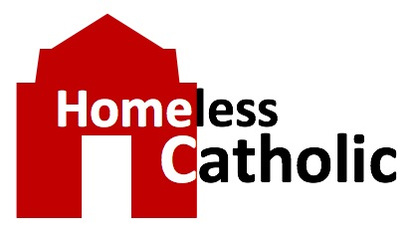Putting words to divine things
Paul is striving to express the inexpressible. Nevertheless, his belief is focused and it is proclaimed in three verses which immediately precede our current reading:
“There is one body and one Spirit, just as you were called to the one hope that belongs to your call, one Lord, one faith, one baptism one God and Father of us all, who is above all and through all and in all.”
Image by Free-Photos
Reflection - chaos
https://bible.usccb.org/bible/readings/102420.cfm
Ephesians 4:7-16
Psalms 122:1-2, 3-4AB, 4CD-5
Luke 13:1-9
In the letter to the Ephesians, Paul advances his theological understanding of ‘church’. In other letters to other communities his teaching focused on the particular congregation to whom he was writing. Here his vision is broader. He speaks of the universal church and its universal mission and so the notion of “church” is addressed as a universal reality. To this end he will instruct on the meaning and appropriateness of diversity among its members.
“He [Jesus] gave some as Apostles, others as prophets,
others as evangelists, others as pastors and teachers. . . “
It is worthy of note that, in Paul’s list, not everyone is sent out to announce the Good News; some (pastors and teachers) have a ministry in the immediate community. But more important is the purpose behind the work that all are called to do. He specifies it clearly:
“ . . . to equip the holy ones for the work of ministry,
for building up the Body of Christ. . . “
The Body is built up through a steadfast adherence to the truth and through the active endeavor to “. . . love one another as I have loved you.” It is through truth and charity that the Body of Christ is built up; and that Body consists of “the holy ones,” that is, all those who have accepted Jesus as Lord.
Paul is striving to express the inexpressible. Nevertheless, his belief is focused and it is proclaimed in three verses which immediately precede our current reading:
“There is one body and one Spirit, just as you were called to the one hope that belongs to your call, one Lord, one faith, one baptism one God and Father of us all, who is above all and through all and in all.” (Ephesians 4:4-6)
Paul is attempting to expound and elaborate upon what he calls the “Unity of the Spirit.” This is the same unity that he will couple with the Christian life when he says “We, though many, are one body in Christ, and individually members one of another.” (Romans 12:5)
This unity goes beyond social or political agreement, beyond family ties, beyond common cultural heritage, beyond national identity. This is a unity that can only be realized through the truth and charity which flow from the one who is Himself “the way, the truth, and the life”. It is a unity that can only be realized through “putting on Christ” who is love incarnate. Moreover, this unity is critical to the realization of the Kingdom. It is not just a nice ideal.
Now the core of these observations is not to reiterate what you already know, nor even to explain what you might not know. Rather, the purpose of dwelling on the unity which Paul insists is at the vital heart of the Christian Community is to contrast it with our times. It is to put a microscope to that which contradicts this unity in our lives. However, if we’re honest, a microscope is hardly necessary.
Chaos is not of God. Never has been. Never will be.
Obviously we have the perpetual disagreements and even strife between nations and the petty arguments which take place in our homes and workplaces and, of course, everything in between. But as the media regularly reminds us these are unprecedented times, the ordinariness of our lives has been disrupted, the plans we can make our limited, the entertainments of previous months have been curtailed and neither scientists nor politicians have ready answers. We squabble among ourselves about responsibility and the would haves and should haves that never took place.
If ever there was a contrast that was not made obvious by violence, our current circumstances would seem to provide one. What better time to reflect on the fact that chaos is not and never has been of God. It is the work of the evil one. As Christians, it would seem that our appropriate response to these trying times would be to bolster the distressed and disheartened through our confidence in the love and power of God the we allow into our own lives. Unity is the work and will of our God, so “Do not be overcome by evil, but overcome evil with good.” (Romans 12:21)

